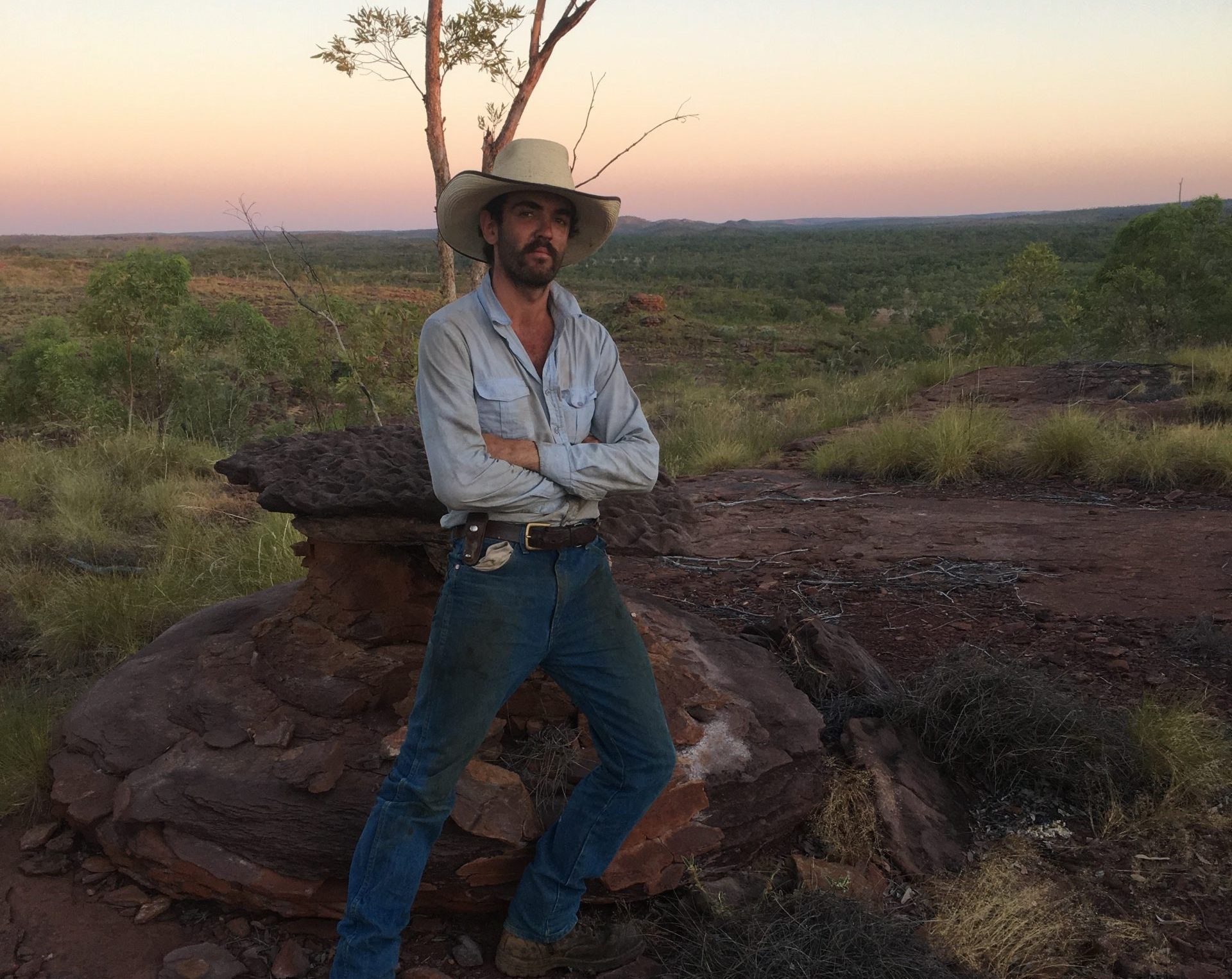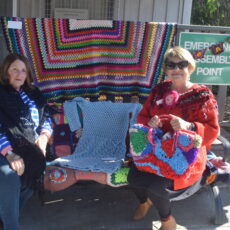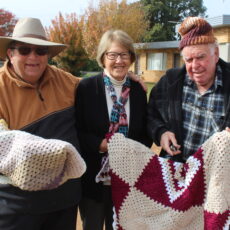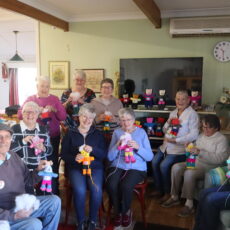Narrabri’s Will Brennan has been taking an enforced holiday at home from his Northern Territory job for more than a month.
Will , the son of Anthony and Donna Brennan, has been working as a station hand, or ringer, on a station near the Gulf of Carpentaria.
It’s about as far from Narrabri as you can get in Northern Australia.
It’s hot, humid and often hard – but Will said the best thing he has ever done.
Will and his fellow stationhands’ job is to catch wild bulls and his enforced time off work was caused by an encounter with a 600kg bull.
“We were loading a bull we had caught a few days earlier and pulling him onto the trailer,” Will said.
“One of my mates was towing him on with the bull catcher and me and my mate were on his tail pulling his tail around.
“The rope broke and my mate went left and I went right.
“The bull followed me, knocked me over and stood on my foot, which ended up around the wrong way. My knee was facing forward and my foot was facing backwards.
“The bull which trod on my foot was a wild one, it would never have been handled by humans before,” he adds.
“I had three broken bones, two in my ankle, one in my knee, tendons were snapped and stretched, the muscle pulled away from the bone and I also dislocated my ankle.
“We were camping out, 140 km from the nearest health centre, and 40km from the station, an hour’s trip.
“It was the last day out on camp – we were going to have four days off after that.
“It seems now I will have six months off.
He was taken to a health centre for 12 hours, his leg was plastered and he was flown to Royal Darwin Hospital by Careflight. In Darwin, he had an operation and spent two weeks there before flying back to the station where his Mum and Dad came and picked him up and drove him home to Narrabri in his ute.
Will’s injury ended that particular chapter, but he isn’t finished with the Northern Territory yet and will eventually be returning.
He set off for the station two seasons ago.
“A mate from school planned to go there straight after school. I didn’t really know what I wanted to do and it seemed like a great opportunity so I thought I may as well take the leap,” he said.
“I have loved it.
“We do mustering on horses and bikes, yard work, fencing, mechanical work, general shed work and of course bull catching.
“My manager has been there about six months longer than me and has caught more than 1000 bulls.”
Catching wild bulls is an acquired skill.
“If we see a bull we will try and get him in with a mob but if he won’t come in someone will go after him with a bike or a horse and try and knock him up, and wait until he tires to a loping canter. And then you get off your bike or horse and tail throw him.
“The technique basically is that if he turns his head to the left and his tail goes to the right, then you wait until his two back legs are up in the air and you throw to the right, his head is to the left.
“It works.
“We restrain him and then put a head rope on his horns and pull him onto the trailer, maybe with two blokes on the back holding his tail to keep him straight.
“Cows can be more vicious than bulls. Bulls are a lot easier to handle.
“It’s easy to get injured. Some of the big cows can do a lot of damage, they are quick on their feet.
“It takes a long time to learn to be able to throw a fully grown bull,” Will adds.
“I have thrown smaller bulls, only about 450kg.
“It can take a few years to get the technique – it is incredibly hard. I haven’t got the technique yet.
“You learn on cows and weaners, and ‘mickeys’, young bulls, and work your way up.
“The manager has been up in the Territory for 15 years and he is pretty good at it.
“‘Last year he and the head stockman were the only ones who could throw bulls.”
Will loved his life in the Territory.
“It’s hot but it’s a lovely place. It can get to 44 degrees and 90 percent humidity from October to April.
“I use a horse for work, and they are a bit wild sometimes. The first muster I was bucked off 16 times, but at the end of the year he was my favourite horse.
“We go barra fishing in the tidal estuaries.
“We go chopper fishing, the helicopter drops us off at a spot you can’t get to by boat.
“Me and some mates got about 65 barramundi on this trip, (pictured). Most we release but we take some home.
“There are some crocs, but we keep clear.”
Will’s home to recuperate for a few more months. What’s next?
“I plan to stay in the north for a few years and eventually come back to the family farm at Narrabri,” he said.
To order photos from this page click here










